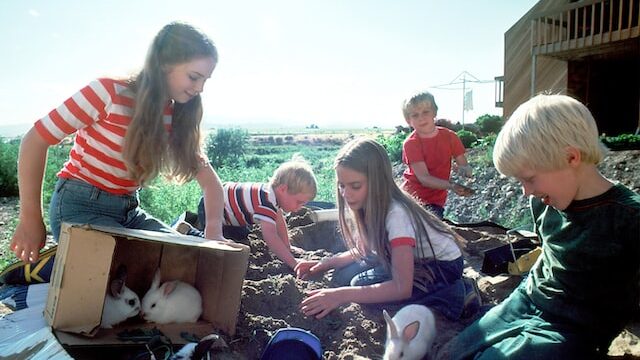ライフハックとしてではなく、英語学習にも極めて有用なのが、著名人が10分程度のプレゼンを行うTEDです。
TED Talksとは、あらゆる分野のエキスパートたちによるプレゼンテーションを無料で視聴できる動画配信サービスのことです。10年ほど前にサービスが開始されてから、政治、心理学、経済、日常生活などの幅広いコンテンツが視聴できることから人気を集めています。
RareJob English Lab
TEDは4000を超える膨大な数の動画があります。しかし慣れないうちは、動画の探し方や視聴のコツが分かりませんよね。この記事では、数多くのTEDを見てきた管理人(塩@saltandshio)が、心を揺さぶられたトークをあらすじと一緒にご紹介します。
ビジネス英会話を効率よく身につけたい方におすすめスクール
シェーン英会話
シェーンは1977年の創業以来、ネイティブ講師が英語を英語で教える「直接教授法」を採用しています。首都圏におけるスクール拠点数は、ネイティブ講師の英会話スクールでNo.1。駅から近いスクールが多いので通いやすく時間を有効に使えます。
スピークバディ パーソナルコーチング
1日1時間の短期集中トレーニングで、あなたの英語力向上をコーチが全力でサポートします。あなたの英語の世界が、劇的に変わります。
アンジェラ・ガーブス:働く親たちが職場で本当に必要としているもの
もし育児を本物の仕事のように取り上げたらどうでしょう? ポッドキャストで配信をしCEOでもあるアンジェラ・ガーブスが、働く家族がどのような進化をしてきて、企業はしてきていないのかを語ります。そして親たちが、同僚や職場から、本当に必要としていることが何なのか、洞察を示してくれます(約5分)。Angela Garbes / What working parents really need from workplaces
[PR]無料体験レッスン実施中!全国208校、創業40年の老舗英会話スクール【シェーン英会話】社会進出しても家事を任されるのは女性
世帯収入は減少傾向が続き、共働き世帯は増加し続けています。物心ついたころから、右肩上がりの経済成長を経験したことがない30歳前後の女性たちは、コロナ以降の不安定な情勢から、仕事を辞めたくても辞められないという板挟みの状態になっています。
時代がどれほど進化しても、家事は女性がするものという文化が根強く残っており、それがあたりまえという考え方から進んでいません。ダスキンが行ったアンケートでも、その傾向が如実に表れています。
ダスキンが共働き世帯の20~50代の男女を対象に実施した調査(2022年2月)によると、最も多かった共働き世帯の家事分担比率は「夫1割:妻9割」でした。加えて、夫と妻で回答に差があることもわかっています。
ダスキン-共働き世帯は家事分担に対して不満がある?(2022.7.12)-
さらに、経済的・文化的価値も見いだされにくいため、家事も仕事であるという認識も低いままです。
世話をすることは、本当に社会の中核です。誰かが世話をすることで、他の人が仕事ができるようになります。
Care is really the backbone of our society. That work is what makes all other work possible.
では、働く親たちを職場はどのようにサポートすればいいのでしょうか。自分自身も母親であるアンジェラ・ガーブスが、3つのアドバイスを紹介します。
[PR]まずは無料カウンセリング”続けるため”の オンライン英語コーチ「スピークバディ パーソナルコーチング」(1)親たちの話しを聞く
2022年10月1日から『産後パパ育休(出生時育児休業)』が施工されました。厚生労働省のホームページには、「令和3年度の男性の育児休業取得率は13.97%と9年連続で上昇し、過去最高となっています」と書かれていますが、それでも男性の育児休業率は約1割で未だに育児は母親がすべきものという慣習があります。
ちなみにアメリカは、先進国の中で育児休業のない2つの国のうちの1つです。
人生のある地点で、あなたが愛し、大事に思う人が助けを必要とする時が来ます。その人たちを助ける時間を取る権利は持つべきです。
You know, at some point in your life, someone that you love and care about is going to need help. You should have the right to take time to take care of them.
国や制度が違っても、職場で困っている人を助けることはお互いにとってプラスになります。では、お互いにwin-winの関係になるためにはどうすればいいでしょうか。まずは、親になった人の話を聞くことから始めてみましょう。勝手な憶測で相手の行動を決めつけていては、互いに視野が狭くなってしまいます。親となった人がなにを考えてどう思っているか、まずはそのことについて聞いてみましょう。

(2)親たちと話しをする
周りの人が考えている以上に、親となった人たちは様々なことを考えてナーバスになっています。そして、それぞれに決断を下して社会に復帰しています。相手の状況を聞きもしないで、勝手な憶測で決めつけてしまっては、無言のまま親たちを追い詰めることになりかねません。
同僚に家のことを聞いてみるのです。子供のことを、それで「隠さなくてもいいんだ」と思わせてあげてください。
Asking a coworker about how things are going at home or with their kid, making people feel like they don’t have to hide that.
作家で経済学者のエミリー・オスターもTEDで、自分が社会復帰するまえに考えた事と、実際に取った行動について話しています。これから育児休暇を取る予定の人、またはいま育児休暇中でこれから仕事復帰する人にとっても、とても参考になる話でしょう。

(3)柔軟性を持つ
働く親たちにとって、起きてから会社にたどり着くまでの時間と、仕事を終えて寝るまでの時間はとても大切な時間です。子供の体調が悪くて早退や仕事を休まなくてはいけないとき、または終業間際に仕事が入って残業しそうになると、多大なストレスを感じます。
従来どおりの会議の時間が、はたして今現在の状況に合っているのか。昔からの慣習になってしまっている様々な根深い問題を、根本的なことから考え直す必要があります。
従来のように時間を追うのではなく、そういったことについて会話を始めることに非常に意味があります。同僚に、あなたが味方であることを教えてあげましょう。
As opposed to tracking time in a traditional way, and opening up the lines of communication around that can be really beneficial. Letting a coworker know that you have their back.
働いている親たちは、周りの人が思っている以上に心細いものです。ひとりでも味方がいてくれると分かれば、これほど心強いものはありません。

まとめ:困った人が助けを求められる環境づくりを
子育てに正解はありません。時代はどんどんと進化していますが、変わらないので苦しむこともあり、変わったことで大変なこともあります。利便性が増している現代では、世話や育児は大変なことだというのを、どこか軽視されがちです。
しかし、こういうことはきちんと話をして、育児や家族との生活を表に出す必要があります。見えない問題を解決することはムリですし、話し合わないと問題は解決しませんから。
But we need to talk about these things and bring parenting and family life out into the open, because we can’t fix problems that we don’t see. We can’t fix problems that we don’t talk about.
同僚が辛そうな顔をしていたら、声をかけてみる。自分の限界が近そうだと思ったら、声を上げてみる。お互いの行動が、これからの会社や社会をきっとより良いものにしてくれるでしょう。なぜなら、誰でも困っている人を助けるためなら、小さくても行動に移せるはずですから。
英語全文
Every parent is a working parent, whether they have a job outside of the home or not.
When Angela shows up at the office, know that Angela has been up for at least three hours, had her hand covered in human excrement, unwedged a small person who has become lodged in between the washing machine and the wall, gotten down on her hands and knees and picked up oatmeal off the carpet.
<全文を読む>▼クリック▼
The reality has progressed beyond where we’re at policy-wise. Most people need multiple sources of income, women want to work outside of the home — we’re still expected to do all of the same things. And so now we outsource a lot of that parenting work to other women, and mainly women of color. We don’t give it financial, cultural value, and so we don’t see it as real work.
Care is really the backbone of our society. That work is what makes all other work possible. So how should we support parents in the workplace?
There are only two industrialized countries in the entire world that don’t guarantee some paid family leave, and the United States is one of them. We should be envying Ghana, Brazil, Turkey, Serbia, Japan, the United Kingdom, Norway, the Netherlands, Sweden — we’re lagging behind the world on this. When I say paid family leave, I’m not talking about necessarily just newborn maternity leave. That includes paternity leave, all genders, families that are adopting and welcoming a new child into their home, people bringing foster children into their home, taking care of aging parents. You know, at some point in your life, someone that you love and care about is going to need help. You should have the right to take time to take care of them. People do their best work when they feel seen and supported by the people that they work for. It’s pretty simple.
Being a parent is often seen as a weakness in the workplace. You come back and people make a lot of assumptions about you. You’re not invited to go on work trips because assumptions are made that you don’t want to do that, or you can’t. And that can be really disempowering to people, and it’s really discouraging and it makes them — in a period of time that’s already stressful — can make you feel even worse.
Asking a coworker about how things are going at home or with their kid, making people feel like they don’t have to hide that. “What’s up with your two-year-old?” Ask to see a picture of their child.
For parents, the hours between 5-8pm are really crucial. It’s sometimes the only time you really have with your kids. You’re often running to pick them up somewhere or to relieve someone from doing childcare. I would much rather send a few emails at 8:30pm than be on a call at 5pm. And so I think emphasizing and creating a culture of work where it’s the work that gets done, the work is what matters, the end result is what matters, as opposed to tracking time in a traditional way, and opening up the lines of communication around that can be really beneficial. Letting a coworker know that you have their back if they want to say that 4:45 doesn’t work for them as a meeting time, that you’ll step in and say that you can’t do it either, right? Just something to show solidarity.
One other thing, as a former breastfeeding mother in an office place — a pumping mother — I should say that if you want to clean out your office fridge every now and then, that is a really beautiful thing to do for a pumping mother, because I used to do that in my office. I would put my little cooler that had breast milk amid like year-old bottles of salad dressing, pad thai that had become petrified, just gross stuff. And no one should have to do that, right? Again, a very, very small thing that makes a big difference in someone’s life.
In striving to be as efficient as possible, as achieving, as productive as possible, we’ve drifted away from this notion of care and parenting being important work. But we need to talk about these things and bring parenting and family life out into the open, because we can’t fix problems that we don’t see. We can’t fix problems that we don’t talk about. It really doesn’t have to be this hard and we can do much more to support people.
<閉じる>


\ ほかにも気になるトークが満載! /








